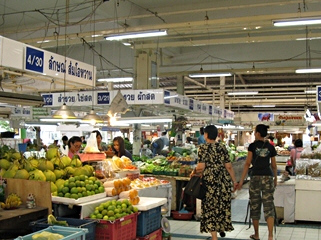BANGKOK, March 23 – A majority of poll respondents–61.3 per cent of the interviewed–said they were not confident in the government’s measures to address Thailand’s rising cost of living, but 38.7 per cent said otherwise, according to a Bangkok University poll.
The Bangkok Poll survey on “People’s Reflections on Current Costs of Living” conducted among 1,203 people in metropolitan Bangkok, showed 76.1 per cent of those surveyed said that current consumer goods prices impact their living expenses and their families well-being, while 23.9 per cent said they felt no pinch.

But more than half–53.2 per cent–said that they could not make ends meet, and more than one in five–22.3 per cent–needed to dig into their savings for day-to-day expenses. Hardest hit are the 16.4 per cent who said they needed loans or borrowed money from others to make ends meet.
The Bangkok University poll found that 14.5 per cent said they had to seek added employment or work overtime to boost their income.
In response to rising goods prices, 35.5 per cent said they were spending money more carefully, 23.2 per cent said they only buy necessities, while 16.2 per cent said they simply spend and buy less.
According to the survey, a major cause of the current rising cost of consumer goods stems from spiking energy prices, according to 36.9 per cent of poll respondents, followed by14.5 per cent who said the government has no clear policies on controlling goods prices and 14 per cent believed that higher production costs is to blame.
Regarding how they rate the government’s performance, opinions were evenly split with 50.1 per cent saying the Yingluck Shinawatra administration paid attention to solving the cost of living problem while 49.9 per cent said it did not.
Nearly one-third, 29.3 per cent, said they wanted the government to keep goods prices under control to prevent further increases while 17.3 per cent suggested the prime minister herself should look into the problem and pay more attention to that.
Some–15.8 per cent–urged a quick hike in both salary and minimum wages both in the state and private sectors.




